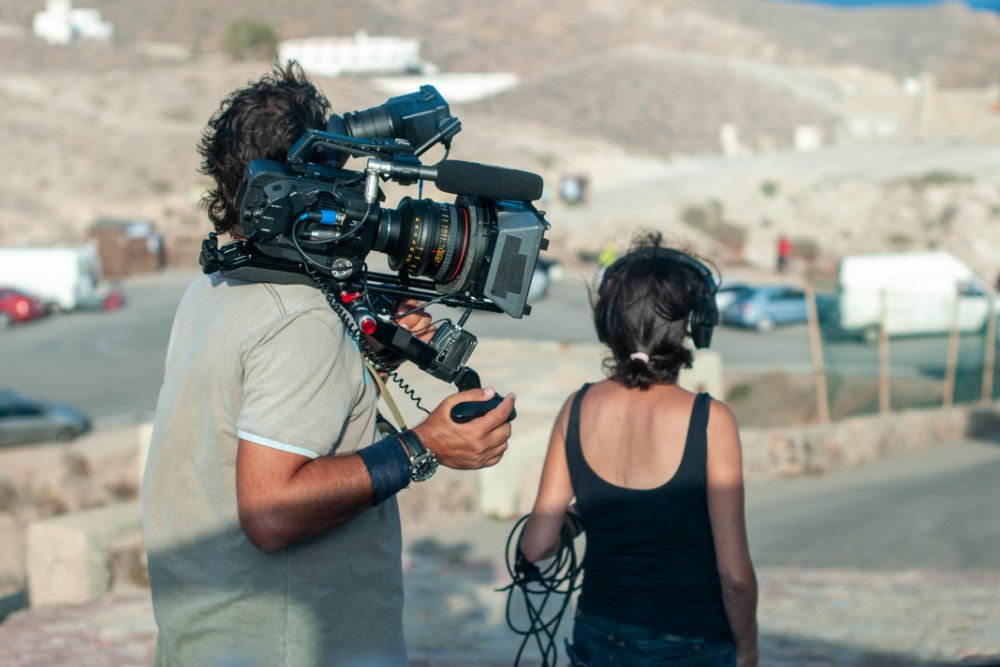"The Crisis Has Become More Acute." What Two Major Funders Are Doing to Strengthen Journalism
/photo: Billion Photos/shutterstock
Since its launch, the Lenfest Institute for Journalism has emerged as an encouraging case study of philanthropy sustaining beleaguered journalism outlets.
The story begins in 2016, when H.F. Lenfest, owner of the Philadelphia Inquirer, the Philadelphia Daily News and Philly.com, donated the publications to the newly formed institute. He also donated $20 million to the institute’s endowment.
In May of 2017, Lenfest pledged an additional $40 million. Even more encouragingly, the institute announced it had received more than $21 million in new donations. A matching campaign hoped to raise that figure above $100 million. As I noted at the time:
Despite the institute's name, this isn't a story about one wealthy philanthropist dedicated to quality journalism. It's about a broader array of funders rallying behind the idea that a big city like Philadelphia needs a vigilant fourth estate—and rallying, too, behind the cause of journalism broadly at a moment when independent media faces an array of threats, including from the White House.
A few months later, the Lenfest Institute announced the winners of its local news innovation grants and its first cohort of entrepreneurs-in-residence.
Lenfest passed away in August of 2018, but his legacy lives on.
The Knight Foundation announced in September that it would match a $10 million contribution from the Lenfest Institute to create a Philadelphia-based local news accelerator that will help strengthen local journalism in Philadelphia and around the country.
The joint $20 million fund will “position Philadelphia as a testing ground for journalism innovation by supporting new business models and new digital acumen throughout the Philadelphia news marketplace,” according to Knight. New grant programs will “focus on serving the information needs of diverse communities and the region’s multicultural news media.”
Sustainability, Training, and Diversity
In one succinct paragraph, Knight’s summary of the new partnership’s goals encapsulates three of the most pressing challenges facing journalism outlets today.
First, news organizations, besieged by declining ad revenue, digital-based competitors, and the ever-looming threat of “vulture capitalists,” have yet to discover the Holy Grail that is a sustainable and replicable business model. (The Lenfest Institute is tackling this challenge from multiple angles. It’s currently accepting applications for its Local Business Model Challenge grant program for projects “that explore new business models for sustainable local news and information organizations.”)
Second, funders acknowledge that this uncertain landscape requires outlets to hire journalists well-versed in what Knight calls a “new digital acumen.”
Lastly, Knight’s reference to “multicultural news media” tells us that as local news ecosystems struggle to attract readers, funders are encouraging outlets to better reflect the communities they serve. A consortium of funders including Knight, the News Integrity Initiative and the Democracy Fund recently launched Community Listening and Engagement Fund, designed to help newsrooms to “listen to and share power with the public before and during reporting.”
Meanwhile, in Chicago, the John D. and Catherine T. MacArthur Foundation announced it would invest a $2.4 million over three years to launch the Jack Fuller Legacy Initiative to strengthen journalism and media by investing in the “production and dissemination of accurate, just, and inclusive news and narratives.”
Philadelphia as a Test Kitchen
The new Knight/Lenfest fund will be split between three main initiatives.
About $5 million will support journalism innovation and training in as many as 30 metro areas. These efforts will build upon the work done under the Knight-Lenfest Newsroom Initiative, a partnership that has provided resources and training to 12 newsrooms over the last three years. Another $5 million will fund a technology resource hub that will act as a central repository for the best ideas on issues such as product development, data journalism and revenue models.
The remaining money will support journalism at the Lenfest-owned Philadelphia Media Network and other city organizations, including those that serve diverse communities. Applications for grants will likely be accepted in the early part of 2019.
Echoing Knight’s commitment to experimentation in all facets of its grantmaking, Jim Friedlich, executive director of the Lenfest Institute, said the hope is to use Philadelphia as a “test kitchen,” then share both the successes and failures with other cities.
“Strong communities move with the times—creating new ways to engage citizens and connect people to place,” Knight president Alberto Ibargüen said. “There is no secret sauce. But our research and experience show that providing people with the information they need to make good decisions, spaces where they can gather and feel ownership, and art that inspires and meets people where and how they live, are key elements of sustainable engagement.”
As for the new Lenfest/Knight partnership, the institute’s Friedlich, commenting on the conditions that gave rise to is formation, was slightly less sanguine than Ibargüen.
“Local journalism is in crisis—financial crisis and, to some degree, political crisis,” he said. “And it's in crisis just when our democracy needs it most. As the crisis has become more acute, the resolve of major funders like Knight and Lenfest has also increased.”







































